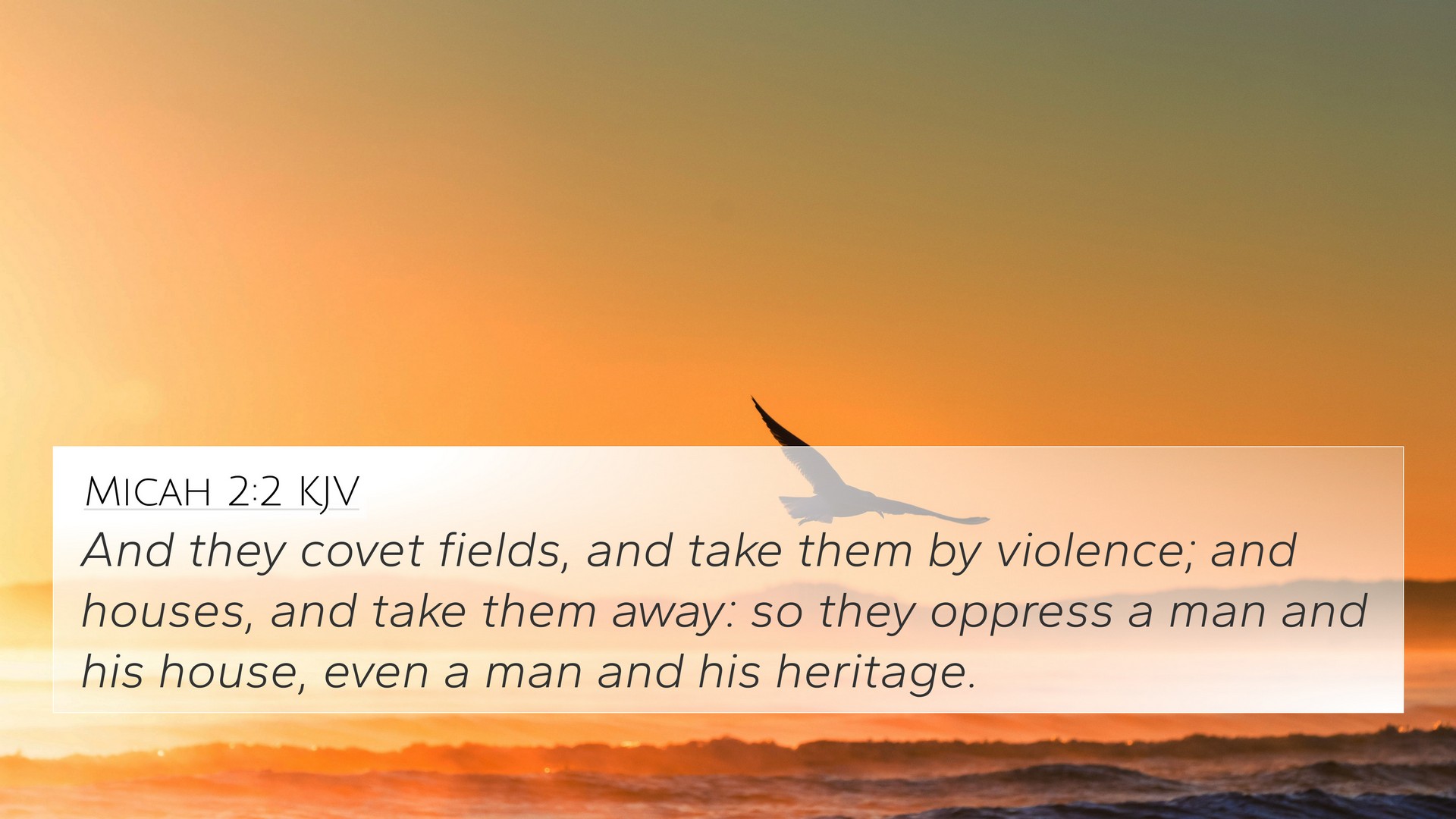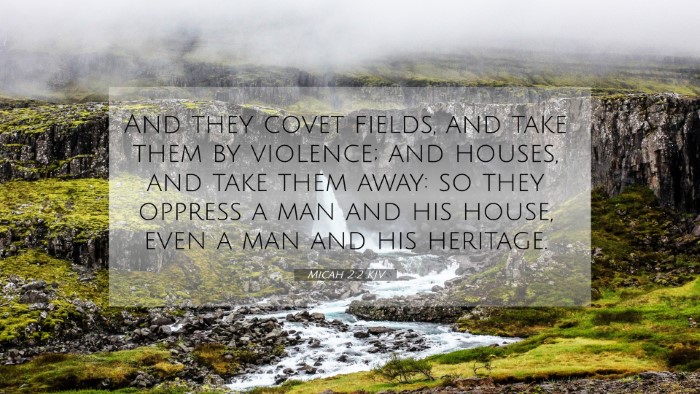Old Testament
Genesis Exodus Leviticus Numbers Deuteronomy Joshua Judges Ruth 1 Samuel 2 Samuel 1 Kings 2 Kings 1 Chronicles 2 Chronicles Ezra Nehemiah Esther Job Psalms Proverbs Ecclesiastes Song of Solomon Isaiah Jeremiah Lamentations Ezekiel Daniel Hosea Joel Amos Obadiah Jonah Micah Nahum Habakkuk Zephaniah Haggai Zechariah MalachiMicah 2:2 Similar Verses
Micah 2:2 Cross References
And they covet fields, and take them by violence; and houses, and take them away: so they oppress a man and his house, even a man and his heritage.
Uncover the Rich Themes and Topics of This Bible Verse
Listed below are the Bible themes associated with Micah 2:2. We invite you to explore each theme to gain deeper insights into the Scriptures.
Micah 2:2 Cross Reference Verses
This section features a detailed cross-reference designed to enrich your understanding of the Scriptures. Below, you will find carefully selected verses that echo the themes and teachings related to Micah 2:2 KJV. Click on any image to explore detailed analyses of related Bible verses and uncover deeper theological insights.

Isaiah 5:8 (KJV) »
Woe unto them that join house to house, that lay field to field, till there be no place, that they may be placed alone in the midst of the earth!
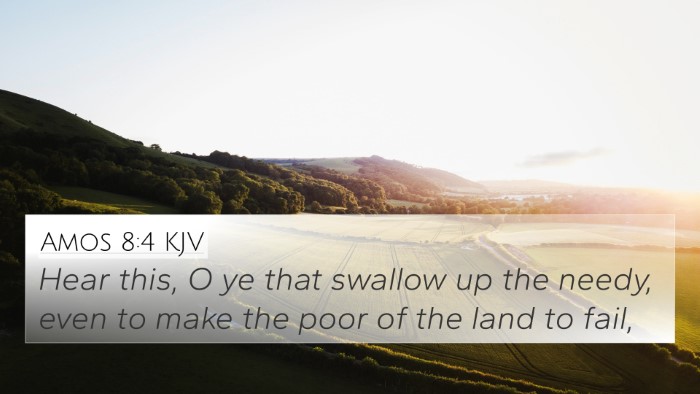
Amos 8:4 (KJV) »
Hear this, O ye that swallow up the needy, even to make the poor of the land to fail,

Jeremiah 22:17 (KJV) »
But thine eyes and thine heart are not but for thy covetousness, and for to shed innocent blood, and for oppression, and for violence, to do it.
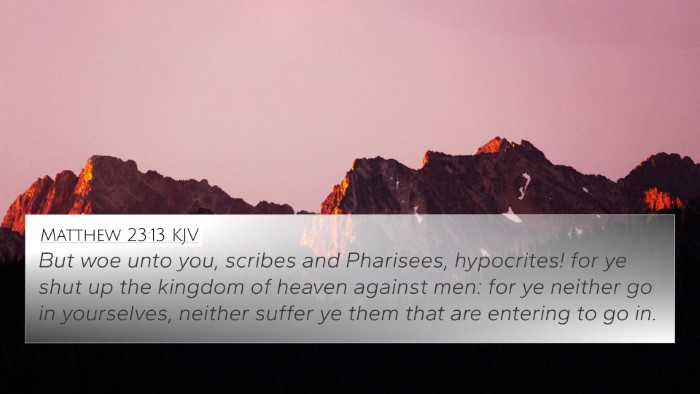
Matthew 23:13 (KJV) »
But woe unto you, scribes and Pharisees, hypocrites! for ye shut up the kingdom of heaven against men: for ye neither go in yourselves, neither suffer ye them that are entering to go in.
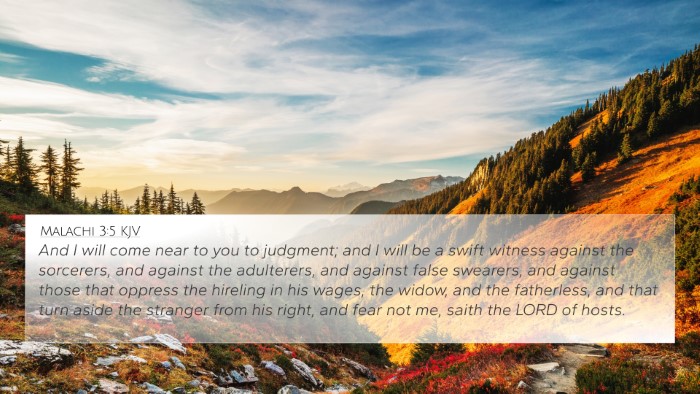
Malachi 3:5 (KJV) »
And I will come near to you to judgment; and I will be a swift witness against the sorcerers, and against the adulterers, and against false swearers, and against those that oppress the hireling in his wages, the widow, and the fatherless, and that turn aside the stranger from his right, and fear not me, saith the LORD of hosts.
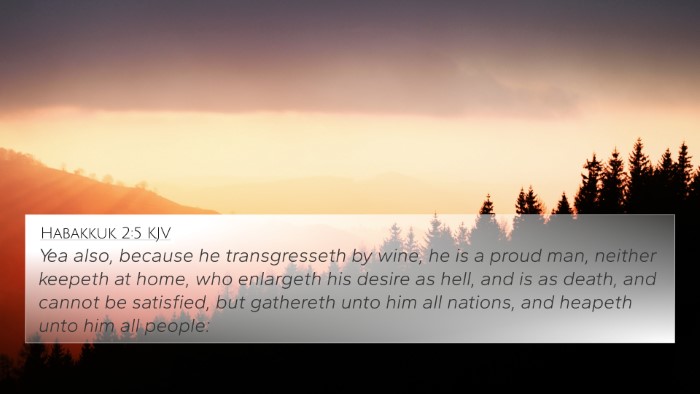
Habakkuk 2:5 (KJV) »
Yea also, because he transgresseth by wine, he is a proud man, neither keepeth at home, who enlargeth his desire as hell, and is as death, and cannot be satisfied, but gathereth unto him all nations, and heapeth unto him all people:
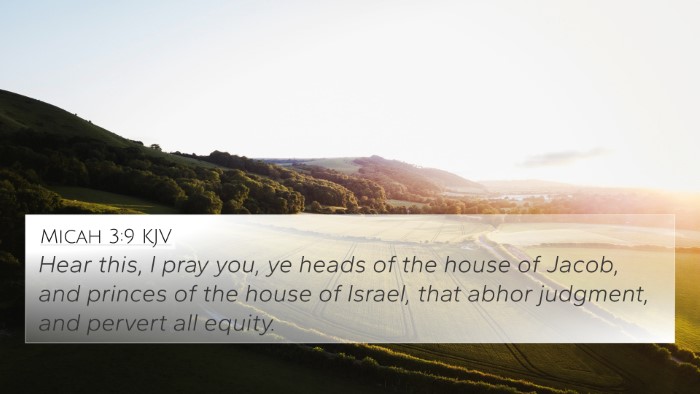
Micah 3:9 (KJV) »
Hear this, I pray you, ye heads of the house of Jacob, and princes of the house of Israel, that abhor judgment, and pervert all equity.
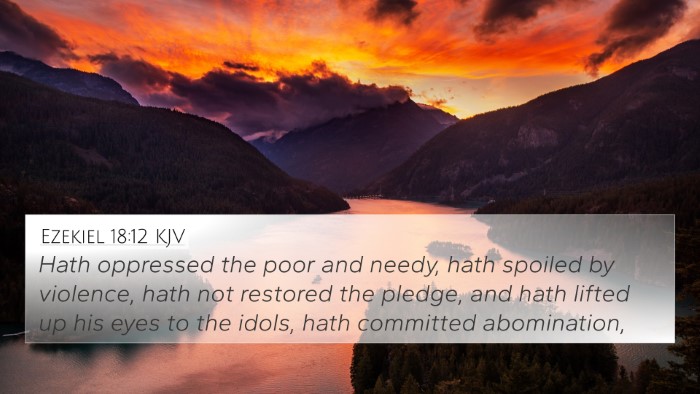
Ezekiel 18:12 (KJV) »
Hath oppressed the poor and needy, hath spoiled by violence, hath not restored the pledge, and hath lifted up his eyes to the idols, hath committed abomination,
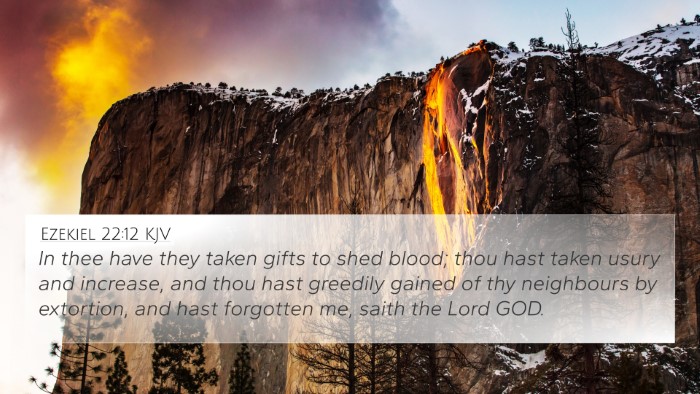
Ezekiel 22:12 (KJV) »
In thee have they taken gifts to shed blood; thou hast taken usury and increase, and thou hast greedily gained of thy neighbours by extortion, and hast forgotten me, saith the Lord GOD.
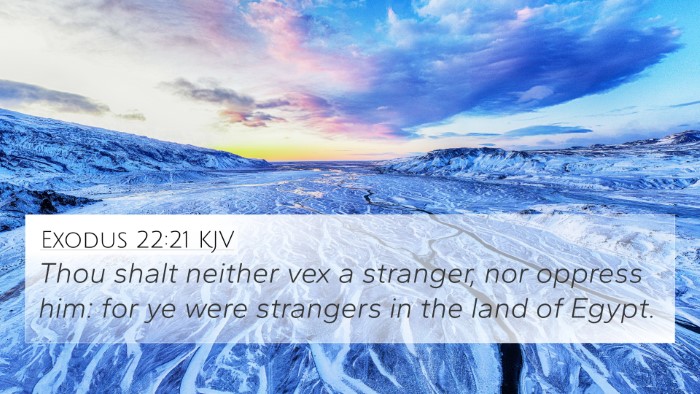
Exodus 22:21 (KJV) »
Thou shalt neither vex a stranger, nor oppress him: for ye were strangers in the land of Egypt.
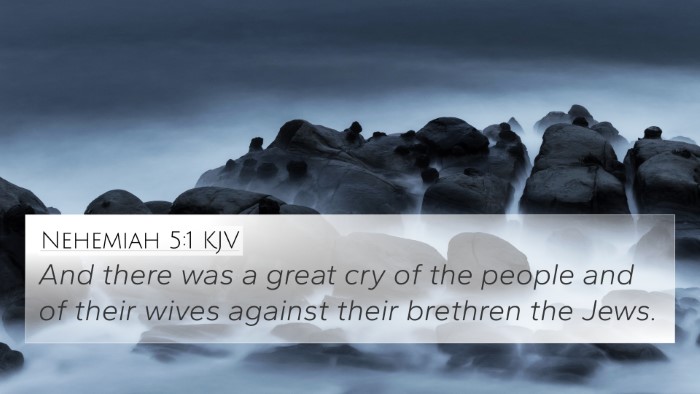
Nehemiah 5:1 (KJV) »
And there was a great cry of the people and of their wives against their brethren the Jews.
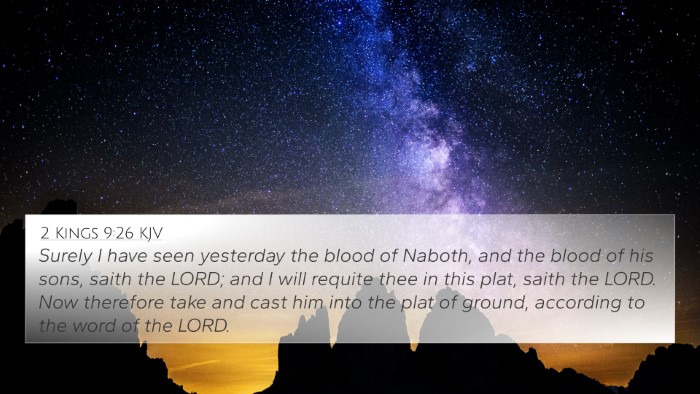
2 Kings 9:26 (KJV) »
Surely I have seen yesterday the blood of Naboth, and the blood of his sons, saith the LORD; and I will requite thee in this plat, saith the LORD. Now therefore take and cast him into the plat of ground, according to the word of the LORD.

1 Kings 21:2 (KJV) »
And Ahab spake unto Naboth, saying, Give me thy vineyard, that I may have it for a garden of herbs, because it is near unto my house: and I will give thee for it a better vineyard than it; or, if it seem good to thee, I will give thee the worth of it in money.
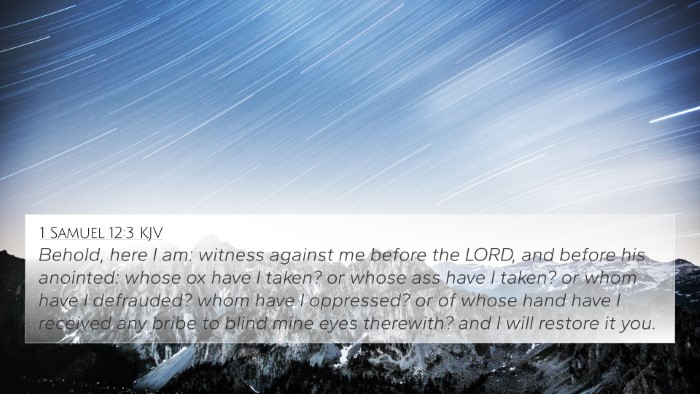
1 Samuel 12:3 (KJV) »
Behold, here I am: witness against me before the LORD, and before his anointed: whose ox have I taken? or whose ass have I taken? or whom have I defrauded? whom have I oppressed? or of whose hand have I received any bribe to blind mine eyes therewith? and I will restore it you.
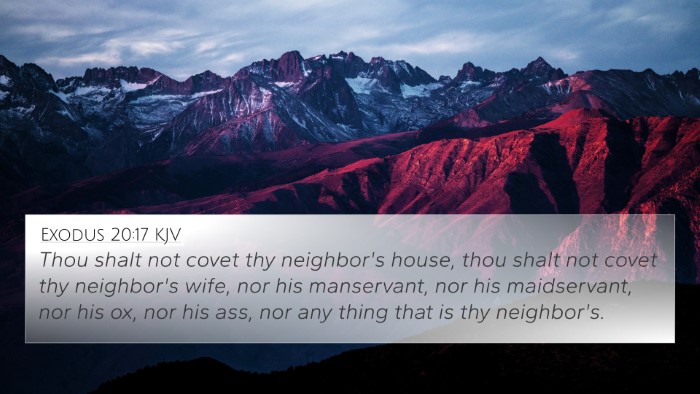
Exodus 20:17 (KJV) »
Thou shalt not covet thy neighbor's house, thou shalt not covet thy neighbor's wife, nor his manservant, nor his maidservant, nor his ox, nor his ass, nor any thing that is thy neighbor's.
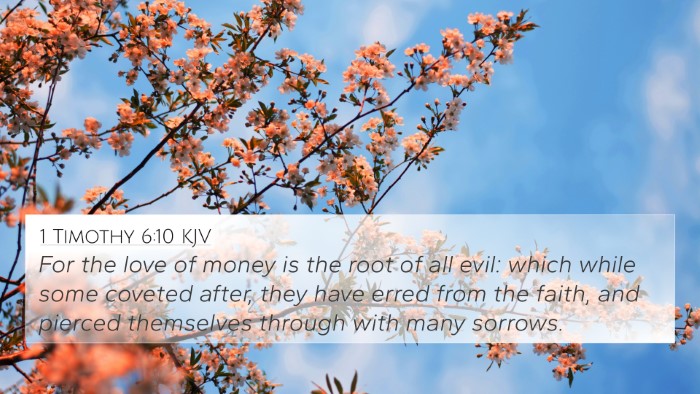
1 Timothy 6:10 (KJV) »
For the love of money is the root of all evil: which while some coveted after, they have erred from the faith, and pierced themselves through with many sorrows.
Micah 2:2 Verse Analysis and Similar Verses
Understanding Micah 2:2
Micah 2:2 states:
"And they covet fields, and take them by violence; and houses, and take them away: so they oppress a man and his house, even a man and his heritage."
Summary of the Verse's Meaning
This verse addresses the moral failures and injustices present in the society of Micah's time. The prophet condemns the greedy actions of those who desire more land and wealth than is rightfully theirs, illustrating how their covetousness leads to violence and oppression.
Insights from Public Domain Commentaries
- Matthew Henry's Commentary:
Henry emphasizes the serious moral decline reflected in this verse. He describes how the wealthy and powerful are taking advantage of the poor, pushing them out of their homes through violence and injustice. He notes that this behavior is an affront to God’s law, which promotes fairness and justice.
- Albert Barnes' Notes:
Barnes highlights the consequences of such greed and oppression, noting that God would ultimately bring judgment upon those who perpetrate injustice. He warns that such covetousness not only leads to societal decay but engenders divine retribution.
- Adam Clarke's Commentary:
Clarke provides a historical context, explaining that the people of Israel were engaged in practices that were not only socially unjust but also contrary to God’s covenant. He underscores the destructive nature of desire for possession that harms others, cautioning against the attachment to material wealth at the expense of moral integrity.
Thematic Connections
The themes present in Micah 2:2 can be observed throughout Scripture. It draws on timeless issues of greed, social injustice, and the moral responsibilities that come with wealth and power.
Cross-References and Thematic Bible Connections
- Exodus 20:15: "Thou shalt not steal." - This commandment underscores the ethical principle that opposes the actions described in Micah 2:2.
- James 5:1-6: A New Testament parallel condemning the rich who oppress the laborers, resonating with Micah's warning.
- Isaiah 5:8: "Woe unto them that join house to house, that lay field to field." - This verse reflects a similar theme of greed and accumulation of property at the expense of justice.
- Proverbs 22:22-23: Advises against robbing the poor, linking closely to the oppressive dynamics described in Micah.
- Matthew 23:25-27: Jesus condemns the hypocrisy of religious leaders who are outwardly righteous but inwardly corrupt, paralleling the societal betrayals Micah speaks of.
- Zechariah 7:10: Associates the call for social justice with a commitment to true worship, tying the prophetic message of Micah to a broader biblical principle.
- Jeremiah 22:13-17: Condemnation of those who build their palaces without regard for justice, resonating with Micah’s denunciation of the wealthy’s actions.
- Luke 12:15: Jesus warns against greed, underscoring that one's life does not consist in the abundance of possessions.
- Ezekiel 18:12: Highlights abuses of power and oppression, affirming the continuity of this theme throughout the prophetic books.
- 1 Timothy 6:10: "For the love of money is the root of all evil." This verse encapsulates the warning against the destructive nature of greed.
Conclusion
Micah 2:2 serves as a crucial reminder about the importance of justice, equity, and moral integrity in society. The insights from public domain commentaries illuminate how these themes are woven throughout Scripture, emphasizing the need for believers to align their actions with God’s will, particularly regarding wealth and the treatment of others.
Helpful Tools for Bible Cross-Referencing
- Bible concordances
- Bible cross-reference guides
- Cross-reference Bible study resources
- Comprehensive Bible cross-reference materials
- Online Bible reference tools for extensive cross-referencing
Cross-Referencing Study Methods
To effectively utilize cross-references in Bible study, consider the following approaches:
- Identify keywords related to the passage for broad thematic connections.
- Utilize a Bible reference system for systematic study.
- Explore Inter-Biblical dialogue by examining links between the Old and New Testament.
- Conduct comparative studies of relevant passages to deepen understanding.
Finding Bible Cross-References
Understanding how to locate cross-references enhances one’s study of God’s Word significantly. Readers can explore methods such as:
- Using topical Bibles to identify connections.
- Employing software tools designed for Bible cross-referencing.
- Engaging in personal or group study to discuss interpretations and their implications.
